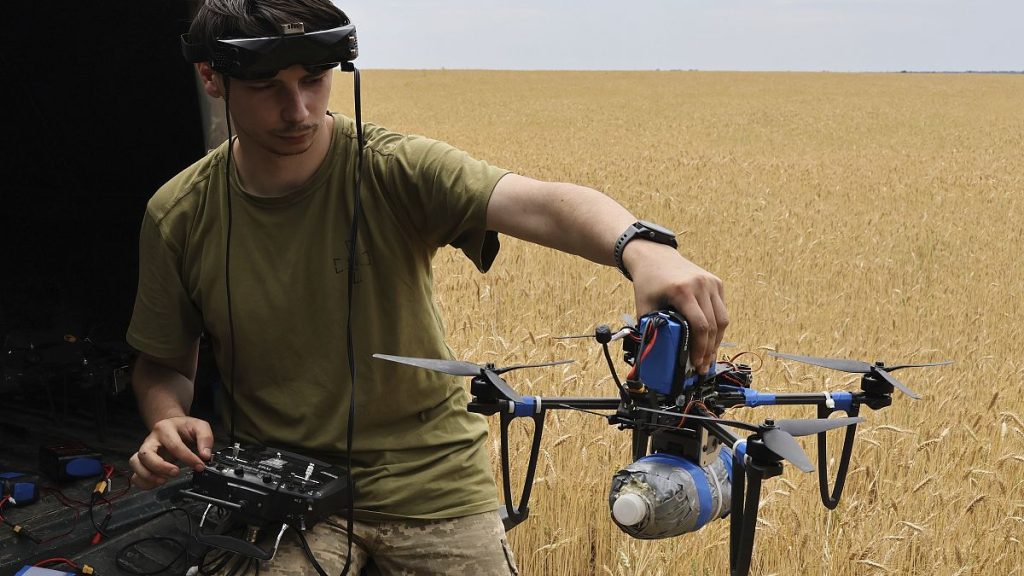The Netherlands has announced plans to invest €400 million in a drone development program for Ukraine, with half of the funding going towards the development of different types of drones in the Netherlands, and the rest being split between Ukraine and other countries. Dutch Defence Minister Ruben Brekelmans stated that the focus of the program will be on surveillance drones, defensive drones, and attack drones to target military facilities. If successful, there will be further funding available to scale up production, in response to the escalating conflict in Ukraine which requires continuous support. The Netherlands will also deliver an additional 24 F-16 fighter jets to Ukraine soon, with the first six jets having arrived in August following an agreement between Kyiv and Amsterdam last year. Since the start of Russia’s invasion in 2022, the Netherlands has pledged €10 billion in military support, with €4 billion already spent.
Ukrainian officials reported that Russian forces conducted overnight attacks on Ukraine with 87 Shahed drones and four different types of missiles, resulting in the death of a 49-year-old man in the Kharkiv region and damage to a gas pipeline and warehouse in the city of Odesa. Ukraine’s air force stated that they had successfully destroyed 56 of the 87 drones and two missiles across 14 Ukrainian regions, including the capital, Kyiv. Another 25 drones disappeared from radar, presumed to have been taken down by anti-aircraft missile defense systems. The attacks came following Ukrainian President Volodymyr Zelenskyy’s announcement to present his “victory plan” at the upcoming meeting of the Ramstein group on 12 October, where he is expected to outline Ukraine’s strategy for securing arms and support from allied nations.
Zelenskyy’s victory plan, which he presented to US President Joe Biden during his recent visit to Washington, is believed to include Ukrainian membership in NATO and the provision of long-range missiles to target locations inside Russia. The President paid tribute to the Ukrainian troops for their efforts in defending the country and emphasized the need for more decisive actions to end the war, stating that Ukrainian drones alone are not sufficient. Zelenskyy expressed confidence that with the right support, the end of the conflict would be closer, underscoring the importance of continuous assistance for Ukraine’s military capabilities as the conflict intensifies. The attacks on Ukraine by Russian forces have resulted in casualties and damage to infrastructure, highlighting the urgent need for increased support from allies to counter the ongoing aggression.
The intensified conflict in Ukraine has prompted the Dutch government to step up its military assistance, with significant investments in drone technology and the delivery of additional fighter jets to support Ukrainian forces. The focus on developing various types of drones, including attack drones, is aimed at enhancing Ukraine’s military capabilities in responding to Russian aggression. The pledge of €10 billion in military support from the Netherlands underscores the commitment to standing by Ukraine in its defense against the invasion. The attacks by Russian forces using drones and missiles have resulted in casualties and destruction in various regions of Ukraine, highlighting the severity of the situation and the urgent need for continued support from allies.
The collaboration between the Netherlands and Ukraine in the drone development program signifies a strategic partnership aimed at bolstering Ukraine’s defense capabilities in the face of escalating conflict. The investment in drone technology is crucial for enhancing surveillance, defense, and offensive capabilities to counter the ongoing attacks by Russian forces. The delivery of additional fighter jets further demonstrates the commitment of the Netherlands to supporting Ukraine’s efforts in defending its sovereignty and territorial integrity. The announcement of the victory plan by President Zelenskyy reflects the determination of Ukraine to secure the necessary resources and support to effectively combat the aggression and bring an end to the conflict. As the conflict continues to escalate, the need for sustained assistance and collaboration between allies becomes more critical in ensuring the security and stability of Ukraine and the broader region.













